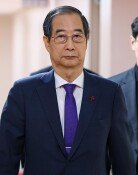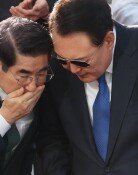The toxicity of dirty politics
The toxicity of dirty politics
Posted August. 05, 2024 08:00,
Updated August. 05, 2024 08:00
More than 58 percent of Koreans said they would not enter into a relationship or marriage if their political affiliation was different. Even among friends and acquaintances, 33 percent said they would not drink with someone with a different political orientation, and 71 percent said they could not participate in civic and social organization activities together. This is according to a social integration survey conducted by the Korea Institute for Health and Social Affairs, a state-run thinktank. The institute released the findings Sunday, which were based on face-to-face interviews with 3,950 men and women aged 19 to 75 from June to July last year.
The survey reveals that political and ideological conflicts, which intensified after the 2016 presidential impeachment, are not limited to the public forum. The toxicity of bad politics spills over into people's daily lives. The results have demonstrated that conversations become uncomfortable if politics comes up as a topic in a relationship, marriage, drinking parties, or regular social and organizational life, and meetings lose meaning.
This is not surprising if you just look at the recent parliamentary news. None of the all-night filibusters, the weekend morning plenary sessions, repeated impeachment bills, and presidential vetoes are in line with the people's wish to 'resolve conflicts through dialog.' This type of politics is further degraded by vulgar language and then reproduced and amplified by some extreme social media outlets that monetize conflict. Frequent exposure to this kind of politics makes us uncomfortable with political differences in relationships, marriage, drinking, and social activities.
Nevertheless, the presidential office, which is responsible for leading national politics, and the majority party in the National Assembly seem to be effectively competing with each other as if to show the degree of their offensiveness. An official at the presidential office said, "It's like a North Korean dirty balloon," referring to the impeachment of Korea Communications Commission Chairperson Lee Jin-sook. The majority Democratic Party countered that by saying, "The behavior of Yoon Suk Yeol government is filth." In any country, the ruling and opposition parties have quarrels, but where else would they exchange verbal bombs, calling each other's political choices filth?
Something is wrong with politics in Korea right now. Politics should be worried about the people; instead, the people are worried about politics. It has been pointed out countless times, but no sign of change exists. Now, we have numbers to prove that our daily lives are being impacted by the toxic politics we are forced to live with.







